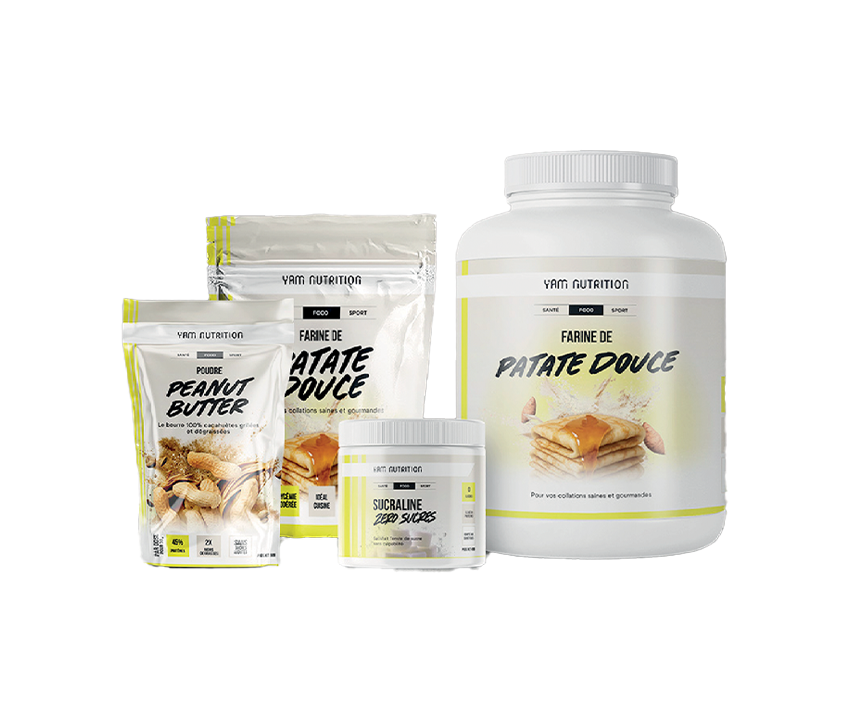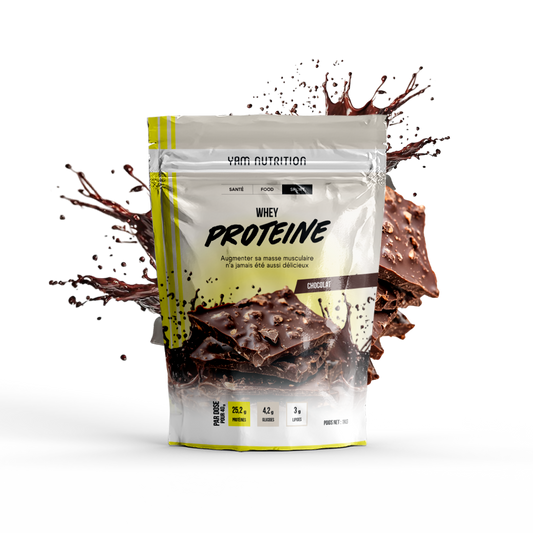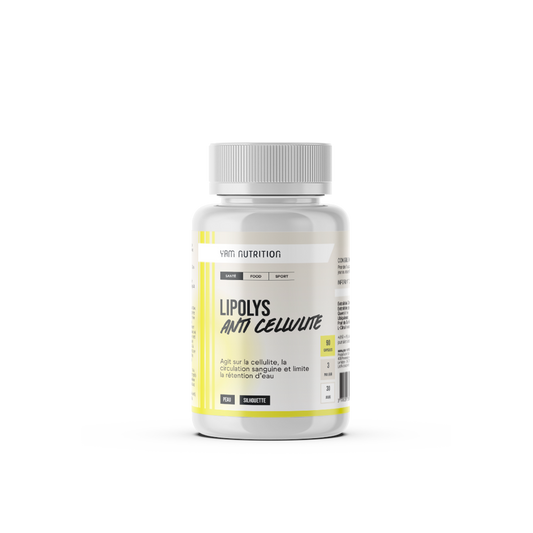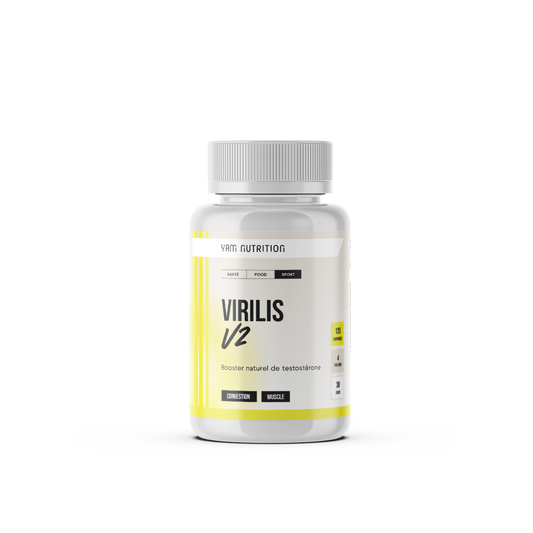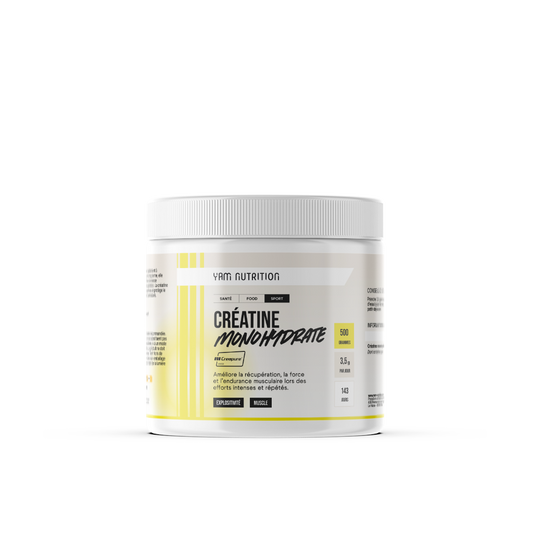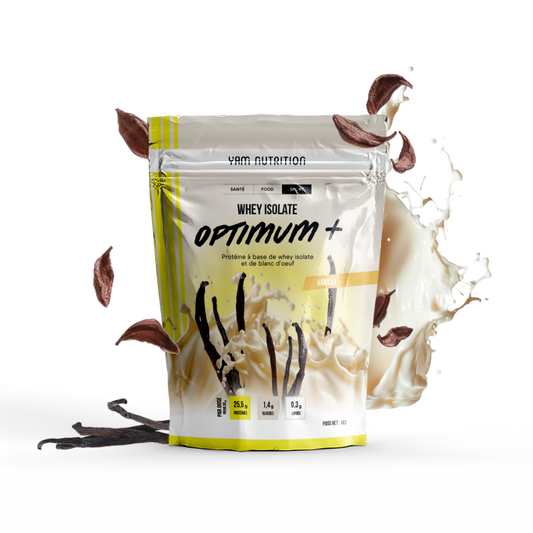What is the optimal amount of protein, carbohydrates and fats to consume?

Sommaire
- The balance between carbohydrates, proteins and fats is important for bodybuilders.
- Carbohydrate intake varies depending on the bodybuilder's goal and training phase.
- Proteins are building blocks but also a source of energy during training.
- Should you take protein or carbohydrates before and after training?
Bodybuilding beginners rarely ask themselves whether their nutritional intake of carbohydrates, proteins or fats are sufficiently balanced. Generally, they only count calories and whether they have had a good workout or not. However, as the years go by, some practitioners, once beginners, will have already gained a few pounds of muscle. However, muscle gain does not always go without fat gain, especially when high-calorie diets are aimed at gaining muscle mass. In this case, the question of the balance between carbohydrates, proteins and fats arises more and more. A rather complex question if there ever was one, we can hardly cover the subject in a single article. However, let's try to lay the foundations to help you get the most out of your food .
Building muscle mass has never been so delicious The natural testosterone booster Improves strength, power and muscular endurance during intense and repeated efforts
Whey Protein
Sale price
From 37,90 €
Virilis V2
29,90 €
Sale price
29,90 €
Creatine Monohydrate Creapure®
Sale price
34,90 €
The balance between carbohydrates, proteins and fats is important for bodybuilders.
From a fairly general point of view, carbohydrates give you energy , Proteins contribute to muscle building while fats participate in the synthesis of androgen hormones and also provide you with energy. However, among these three macronutrients, protein or carbohydrate intake can vary, depending on your sporting activity, whether it is a resistance sport like bodybuilding or endurance. Indeed, endurance athletes could be satisfied with a nutritional protein intake equal to 20 or 25% of their total daily calories. Conversely, bodybuilders who want to build muscle could raise this percentage to 30 or 35% of their diet. In addition, if a bodybuilder is preparing for a competition, a higher protein intake, combined with a lower intake of carbohydrates and fats could be retained. If there are dietary constants, the variations are generally greater when it comes to strength sports like bodybuilding, as opposed to endurance sports.
Carbohydrate intake varies depending on the bodybuilder's goal and training phase.
Whether it's strength or endurance, Carbohydrates are still the primary source of energy. (and ATP ) of athletes. Some bodybuilders believe that taking creatine is enough to gain strength. However, if your muscle glycogen stores are insufficient, all the creatine in the world will do you absolutely nothing. On the other hand, if your carbohydrate intake is sufficient, the effects of creatine will be felt gradually (or perhaps more quickly with caffeine). You should keep in mind that the phosphagen system (phosphocreatine and free creatine to ATP) only lasts a few seconds and after this short period of time, your muscles switch directly to anaerobic glycolysis. In other words, even bodybuilders use glucose very quickly during their exercises.
Proteins are building blocks but also a source of energy during training.
Naturally, the micro-tears created by weight training need to be repaired. This is a process that begins within the first few hours of stopping exercise and continues for 2 to 5 days. Protein and amino acids play an important role in this. When gaining mass, an intake of 30/35% protein, with 50% carbohydrates and 15 to 20% fat is generally considered a good percentage. In the muscle definition phase, 45 to 50% protein with 35 to 40% carbohydrates and 10 to 15% fatty acids could be considered. Be careful, however, never make the mistake of reducing fats to a minimum because they contribute to the synthesis of hormones and the membranes of your cells. Your liver retains more than 70% of the cholesterol your body needs, but the nutritional intake in fatty acids contribute significantly to the synthesis of androgen hormones, including testosterone . These figures are, moreover, rather generalities; each organism, each metabolism is different. It is obvious that your body will not react in the same way as that of another bodybuilder.
Should you take protein or carbohydrates before and after training?
The question of whether it is better to take carbohydrates or fast-absorbing proteins before training is often asked by athletes. This kind of question indirectly answers the notion of macronutrient balance that we just discussed. Let's say that if you take a protein an hour and a half before training, it is very likely that it will serve to fuel your muscles during exercise. However, the use of amino acids during training is not a priority, but the question is more complex than it seems. Your glycogen stores, if they are sufficient, will be the primary source of energy for your muscles. Similarly, amino acids of your protein will be used for energy if they have no other immediate use.
In any case, Your muscles will use the calories made available to them, whether from carbohydrates or proteins . Conversely, taking a protein after bodybuilding can restart anabolism while carbohydrates will not do this but will rather contribute to recharging your glycogen stores, which slows down the catabolism of amino acids. In this case, the hydrolyzed casein offered by YAM Nutrition can be consumed during training in order to provide you with peptides that can be used as an energy source. It can also block the possible catabolism that occurs after intense bodybuilding training, for example.
However, try to keep in mind the figures we have given you. During mass gain, for example, you could perfectly use Big Yam since it is a mixture of 60% sweet potato flour (moderate Glycemic Index) and 40% concentrated whey (Whey Protein). During periods of cutting and muscle definition, we could recommend our Whey Isolate or our Whey Protein concentrate to reinforce your intake of protein with high nutritional value.
YAM Nutrition
Eric MALLET
Spécialiste en Nutrition Sportive
